So i'm looking for a cost affective way to host a website in a linux vm. The pricing only states the VM's cpu and RAM. What about the space used up by the OS and apps in the VM as well as the ongoing disk usage? is this an added cost? Whats the size of the disk?
-
well disk activity from a web app hosted by the vm – Ryan Burnham Aug 25 '12 at 15:00
5 Answers
I get tired of going round in circles and getting confused every time (twice now) I set up a new VM. So here's what I've found:
Let's say I choose the DS1_V2 virtual machine, which supports premium (SSD) storage. (This just means the physical azure node with your VM on it allows use of SSD as an drive. I assume all new configurations support SSD and it's just legacy hardware that doesn't but I'm not 100% sure on this.)
The monthly price is currently about $100 for this VM. You only get included what you see here:
So the 7GB local SSD disk size here is included in the $98.95, but you get no other storage. This 7GB vanishes when you reboot anyway so you can't use it for real storage.
When you create a VM you have a choice between HDD and SSD. The 'new VM wizard' encourages you to select SSD but doesn't tell you what pricing that will incur. This I think is very misleading and a source of confusion and probably why you are now reading this.
Anyway - let's say you picked SSD (which I did). You'll get a 127GB drive as your C:\ and the temporary storage in addition as your D:\
In your account portal you will see two items created
To confirm how this drive is configured you must click on it and you'll see something like this :
When you choose an SSD for your operating system it will default to 127GB but you will always pay for the full drive. Note that you can switch between HDD and SSD, but you need to reboot the VM.
The current pricing for 128GB (which is what they call a P10 disk) is $19.97 a month. So the total price for your VM will be fixed at $98.95 + $19.97 a month as long as you use SSD. To put it another way you're paying for a P10 disk that just happens to be used as your VM's operating system.
SSD Drive Pricing
As a comparison for HDD you only pay for what you use. If you used up the whole 127GB you'd be paying around $2.94 extra instead of $19.97. So SSD is really a minor expense but not negligible and certainly NOT included..
HDD Drive Pricing
And then in your billing you will see it listed as P10
I have two VMs set up with SSD so they are charging me $39.47/2 = $19.74 for each one.
- 1
- 1
- 140,023
- 84
- 646
- 689
-
2This is very insightful. Also, for Standard HDD Managed Disks, they charge extra for every 10,000 transactions. Unfortunately, most end-users won't be able to translate this cost for their use cases. Azure team should seriously consider revising their documentation on pricing part, if they don't want to misguide the users!! – Janaaaa Nov 02 '20 at 00:24
EDIT June 27, 2014 - updated pricing to be current (this answer was two years old).
Your Virtual Machines are each stored in blob storage. So, if your machine image takes up, say, 20GB, you are now paying for 20GB of storage (actually, you only pay for storage used within that 20GB disk, as Azure's vhd's are stored in a sparse format).
At 12.5 around 2.4 cents per GB (locally-redundant storage, which you'd use with vhd's), and you actually used all 20GB, you're talking less than 50 cents monthly. You'll also pay a penny half-penny per 100,000 storage transactions. even though your VM disk volume looks like a formatted drive, its underlying storage is Blob Storage; gets and puts result in metered transactions.
More details on storage costs are here.
- 69,407
- 21
- 141
- 189
-
1That could be a lot clearer in their setup. any rough idea of how many transactions a idle linux system would use? – Ryan Burnham Aug 25 '12 at 15:18
-
4Related note: http://social.msdn.microsoft.com/Forums/en-US/windowsazuredata/thread/da62e25d-eedb-4f03-956a-f2a68d94f6cd *Since VHDs are stored as page blobs, you will only be charged for the data you're storing. Let's say you created a 30 GB VHD but storing only 1 GB of data in it, you will only be charged for 1 GB. All empty pages are not charged.* I'm having trouble finding corroborating evidence for that statement, but that seems appealing. – Mike Asdf Apr 25 '13 at 22:07
-
FYI, there's a little [supporting evidence here](http://blogs.msdn.com/b/windowsazurestorage/archive/2012/06/28/exploring-windows-azure-drives-disks-and-images.aspx) agreeing that the VHDs are stored as sparse files, although it's hardly conclusive. *When you are uploading your VHD into storage, you will want to use a tool that understands that page blobs are sparse, and only uploads the portions of the VHD that have actual data in them* – Jaxidian Jun 14 '13 at 15:53
-
Thanks for your answer. I don't get why it is so relatively expansive. I mean, you get 5TB with a usual Office 365 account, but you are charged for some GBs of virtual machine? Not good promotion... – Jan Rothkegel Jun 24 '14 at 11:10
-
1Because almost no one will use 5TB on an Office 365 account, but if you were offered 5TB (or similar) of free persistent geographically replicated arbitrarily used consistent throughput storage with every VM then people would definitely find ways to use it. – Michael Petito Jun 27 '14 at 13:16
-
@Jan - this answer was 2 years old, and I updated it. Storage is a fraction of what it used to cost, and remember that Azure Disks are triple-replicated, so it's *durable* storage (unlike a locally-attached disk). Further: Your storage cost is a *rounding error* compared to your VM cost. I think you need to rework your pricing. A pair of Small (single core) VMS may run you a total of $120 monthly, while the total storage for the pair of VHD disks may run you... a dollar. – David Makogon Jun 27 '14 at 16:58
-
And... Office 365 is completely unrelated to Azure. Separate service, separate set of offerings. Not relevant here. – David Makogon Jun 27 '14 at 17:00
-
I use Azure for test purposes only. So when I turn on my VM for several hours a month the costs for storage equal the costs for running the machine. It's not much, but it is an amount that is going to be charged and I must pay credit card fees for it ;-) – Jan Rothkegel Jun 30 '14 at 10:18
This has changed with Premium Storage, which gives you SSD disks. You pay for the full SSD disk regardless of how much data is on said disk. SSD disks come in 3 sizes, 128GB, 256GB, 512GB.
- 4,863
- 3
- 43
- 73
-
4When creating a new vm there is no mention of this extra cost - it just shows the VM pricing – Simon_Weaver Apr 19 '17 at 09:09
I`ve created a tool http://azureprice.net to compare azure VMs and bunch other stuff that can help choose the cheapest VM, region, and currency. Probably somebody finds it helpful.
- 89
- 5
http://msdn.microsoft.com/en-us/library/windowsazure/ee814754.aspx
Lists how much storage you get for the instance size selected. I beleive your OS does take up that number. So an extra small instance gives you 20GB of space. and if you OS is 5GB you will have 15GB for app useage.
- 1,325
- 1
- 13
- 23
-
The Virtual Machine images are stored in blob storage, not the temporary storage assigned to PaaS web/worker roles. Two separate things. – David Makogon Aug 25 '12 at 15:03
-
Ok, I guess I was misunderstood that when I was getting it explained to me. Thank you for letting me know! – AndyC Aug 25 '12 at 15:05
-
@DavidMakogon so is there an extra cost to that? If it was set up using the "use automatically generated storage account" option? i've set one up on the trial but i don't see anything under storage accounts – Ryan Burnham Aug 25 '12 at 15:07
-
Yes - see the answer I just posted. That auto-generated storage account will be billed as any other storage account would. – David Makogon Aug 25 '12 at 15:09
